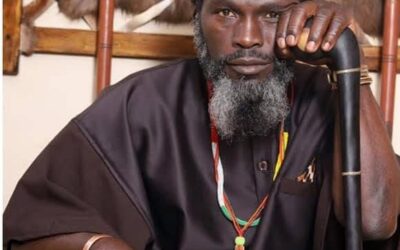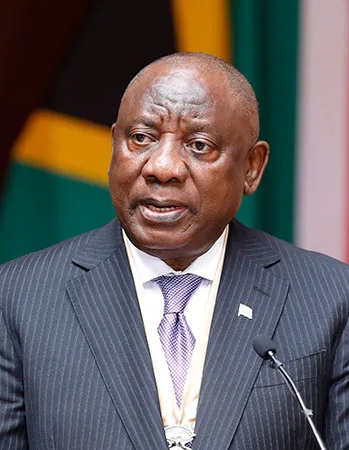By Bafana Phalane
In his recent State of the Nation Address, President Cyril Ramaphosa firmly declared, “We will not be bullied,” in response to mounting international criticism, particularly from the United States, over South Africa’s newly enacted land expropriation law. This legislation permits the government to expropriate private land without compensation, a move aimed at addressing historical injustices stemming from apartheid-era land dispossession. However, it has ignited significant controversy both domestically and abroad.
The U.S. administration, under President Donald Trump, has been particularly vocal in its opposition. Trump announced plans to halt U.S. funding to South Africa, alleging land “confiscations” and the mistreatment of certain groups. He stated, “We will be cutting off all funding to South Africa until such time as they change their land policies.” This decision threatens approximately $500 million in annual aid, primarily directed toward South Africa’s HIV/AIDS programs.
Elon Musk, a South African-born billionaire and advisor to President Trump, has also criticized the land reform policies, labeling them as “racist” against white farmers. Musk’s influence in the U.S. administration has further complicated the diplomatic landscape. In response, President Ramaphosa engaged in a direct conversation with Musk to address what he termed “misinformation” about the country’s land reform initiatives. Ramaphosa emphasized South Africa’s commitment to justice, fairness, and equality, asserting that the reforms are designed to rectify historical disparities and promote equitable land access.
Domestically, organizations such as AfriForum have been accused of disseminating misinformation regarding the land reform process. AfriForum has consistently opposed the expropriation bill, arguing that it threatens property rights and could lead to economic instability. In a statement following a previous State of the Nation Address, AfriForum’s Head of Policy and Action, Ernst Roets, remarked, “It however remains a mystery to AfriForum why the government would insist on holding on to a universally failed policy.”
On the international front, South Africa’s involvement in the Democratic Republic of Congo (DRC) has come under scrutiny. The resurgence of the M23 rebel group in eastern DRC has led to escalating violence and instability. South African troops, as part of the Southern African Development Community (SADC) mission, have been deployed to the region to support peacekeeping efforts. However, the mission has faced significant challenges, including the deaths of several South African soldiers in recent clashes near Goma.
Tensions have also flared between President Ramaphosa and Rwandan President Paul Kagame over the situation in Goma. Rwanda has been accused of supporting the M23 rebels, a claim it denies. In a recent meeting, both leaders agreed that a political solution is preferable to military action in addressing the conflict. Ramaphosa stated, “We both agreed that peace was an essential component fostering the development of this part of the continent and that in doing so we should bring the conflicts that are happening in the eastern part of the DRC to an end.”
Amid these international challenges, South Africa continues to grapple with domestic issues such as high unemployment, rising living costs, and increasing crime rates. In his address, President Ramaphosa acknowledged these difficulties and outlined plans to stimulate economic growth, create jobs, and enhance public safety. He emphasized the importance of unity and resilience, stating, “Let us get to work. Let us rebuild our country. And let us leave no one behind.”
As South Africa navigates these complex issues, the government’s stance on land reform and its involvement in regional conflicts will continue to shape its domestic and international relationships. The administration remains steadfast in its commitment to addressing historical injustices and promoting equitable development, even in the face of external pressures and internal challenges.
Bafana Phalane: Editor & Founder @ Maverick Point








13 thoughts on ““We Will Not Be Bullied””